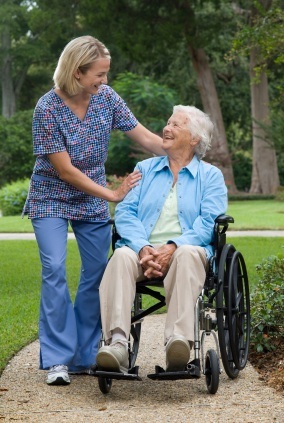Search
“Home Care Nursing” Doesn’t Mean “No Care Nursing”
 As the number of older adults increases, families are faced with the question of where their parents and grandparents will receive the best care.
As the number of older adults increases, families are faced with the question of where their parents and grandparents will receive the best care.
The answer for many families is to keep their family members at home. Many older adults who live at home require home health services, home nursing services, and in-home support services in order to maintain a high quality of life.
Although home care nursing affords seniors more flexibility, the lack of a structured setting makes them particularly susceptible to elder abuse, neglect, and financial exploitation– especially at the hands of unqualified or dangerous in-home caregivers.
About 7.5 million individuals receive long-term care at home because of an acute illness, long-term health condition, permanent disability, or terminal illness according to the American Association for Long-Term Care Insurance. This is significantly more than the 1.5 million individuals in nursing homes and 1.1 million individuals in assisted living facilities who receive similar care for the same types of conditions.
In order to protect individuals who receive health services at home, some states such Illinois, have passed laws to protect seniors who receive care in their homes. Illinois’ Home Health, Home Services, and Home Nursing Agency Licensing Act (210 ILCS 55) ensures that people who receive home health services, home nursing services and in-home support services at their residence are granted consumer protection and quality care. The Act establishes and enforces standards for services and care.
In addition, all home nursing agencies must be licensed by the Illinois Department of Public Health as one or more of the following entities: home health, home nursing, and home services agencies. One requirement for licensure is compliance with the requirements of the Health Care Worker Background Check Act (225 ILCS 46), which helps protect frail and disabled citizens through a criminal background check of health care workers. A licensee of an agency that violates of the Home Health Licensing Act may be subject to penalties or fines of $100 per day starting on the date of the violation and ending on the date the violation is corrected.
No doubt about it, legislation applicable to home nursing certainly provides a foundation for patient safety. Nonetheless, as the demand for home nursing continues to grow, many companies that provide home nursing care will cut corners with respect to screening and training their workers in order to satisfy the demand.
If your loved one has suffered an injury or abuse at the hands of a home care worker, you should immediately report the situation to law enforcement. Many of these tragic situations give rise to civil lawsuits against these home care agencies. As always, you can talk candidly with our lawyers about your legal options for free. Only if we are successful recovering money on your behalf, will we accept a fee. (800) 926-7565
Sources:
Illinois General Assembly: 210 ILCS 55 Home Health, Home Services, and Home Nursing Agency Licensing Act
Illinois General Assembly: Administrative Code, Part 245 Home Health, Home Services and Home Nursing Agency Code
Illinois General Assembly: 210 ILCS 46 Health Care Worker Background Check Act
Medical News Today: New Study Reports Three Times More People Receiving Health Care Support at Home Rather Than in Nursing Homes or Assisted-Living Facilities
Nursing Home Injury Laws: Illinois
 Nursing Home Law News
Nursing Home Law News

